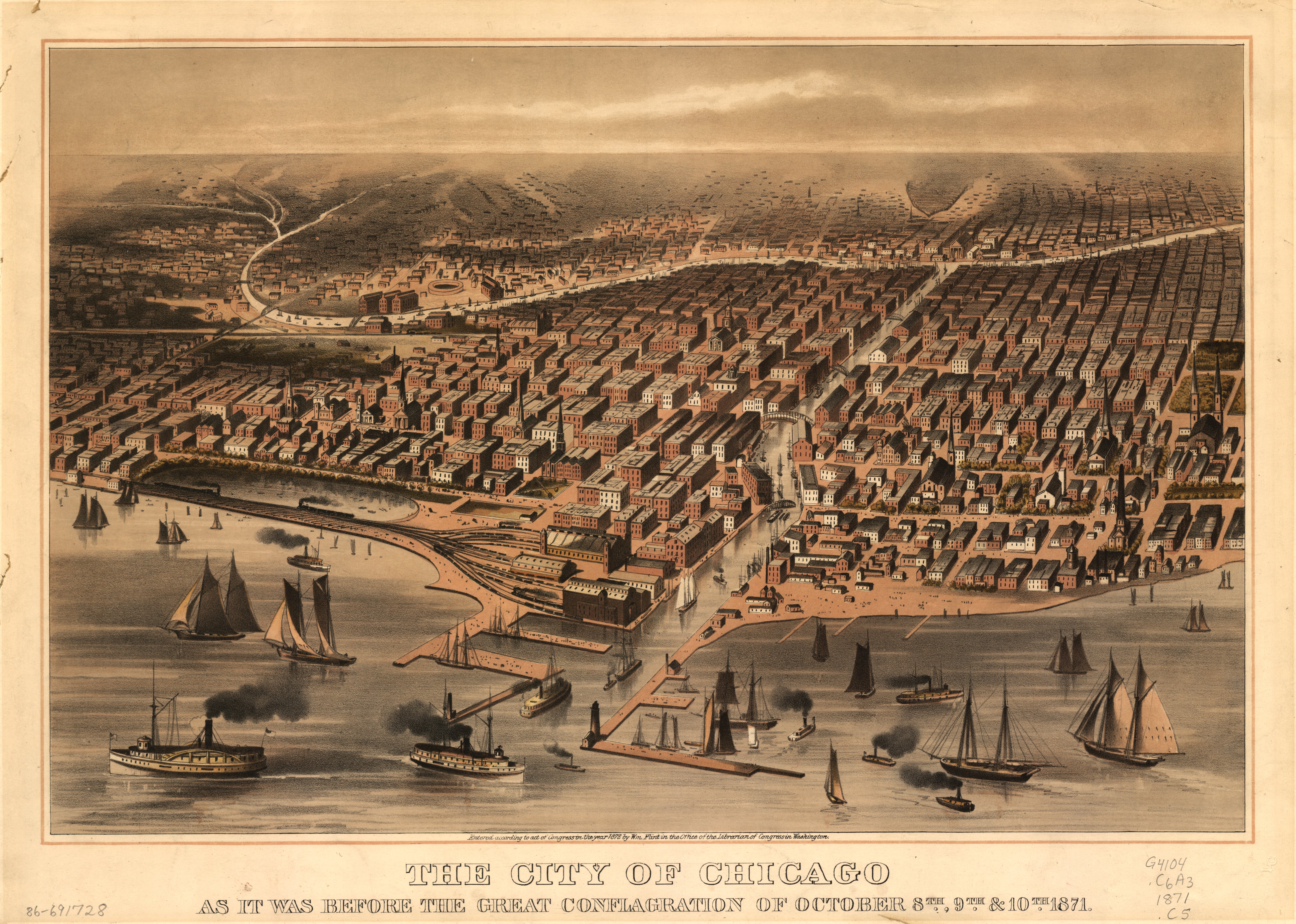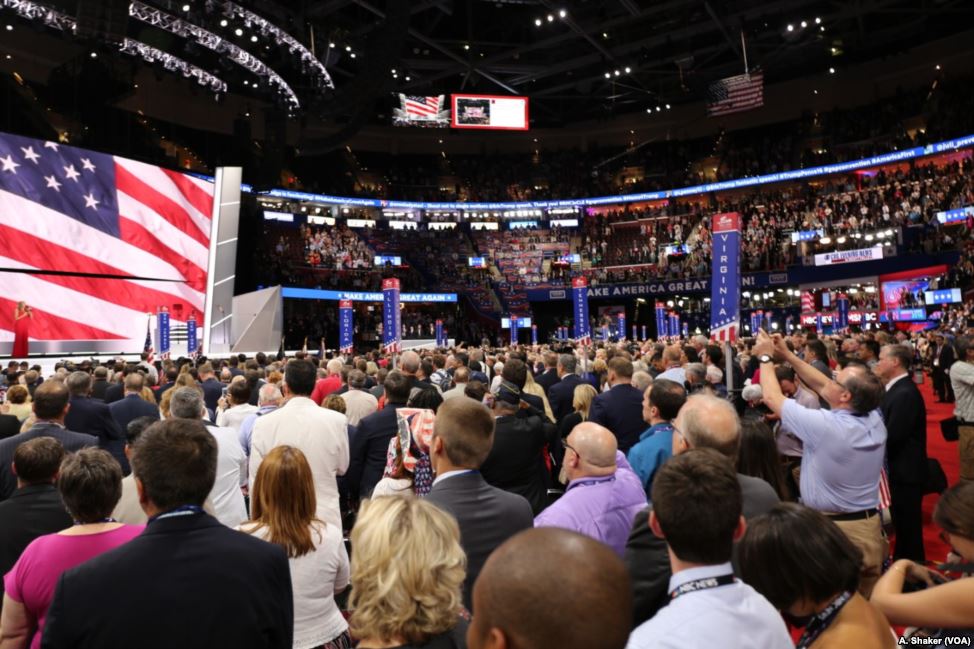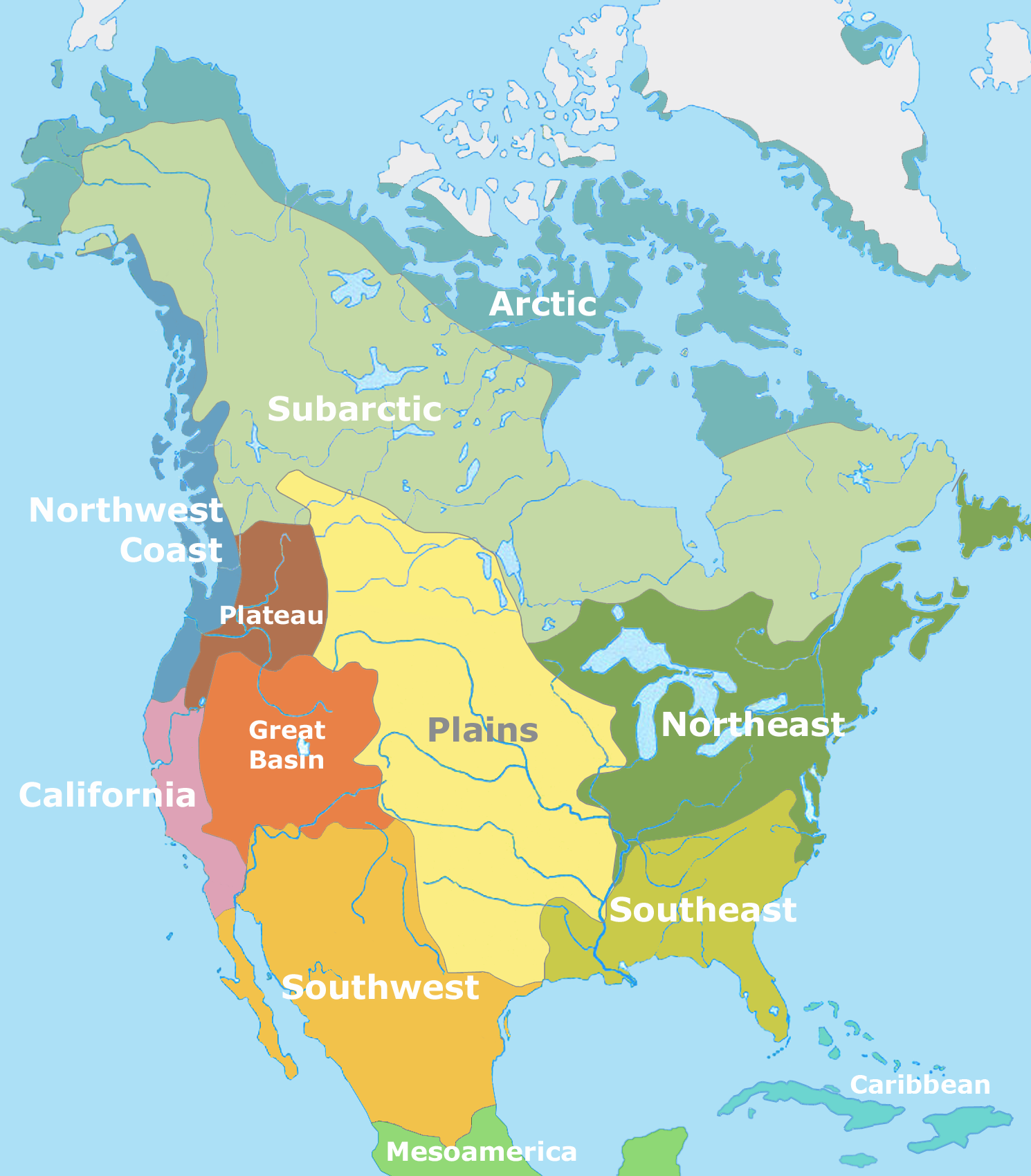|
Wigwam (Chicago)
The Wigwam was a convention center and meeting hall that served as the site of the 1860 Republican National Convention. It was located in Chicago, Illinois, at Lake Street (Chicago), Lake Street and Market (later Wacker Drive) near where the Chicago River divides into its north and south branches, on property owned by Garrett Theological Seminary. This site had previously been the site of the Sauganash Hotel, Chicago's first hotel. This is where supporters ushered Abraham Lincoln to the party nomination and the eventual President of the United States, U.S. Presidency. The location at Lake and Wacker was designated a Chicago Landmark on November 6, 2002. The name "Wigwam" was later associated with host locations for both the 1864 Democratic National Convention and the 1892 Democratic National Convention in Chicago. The building The two-story Wigwam was built by Chicago business leaders to attract the 1860 Convention. It was a temporary structure, built entirely of wood in li ... [...More Info...] [...Related Items...] OR: [Wikipedia] [Google] [Baidu] |
Great Chicago Fire
The Great Chicago Fire was a conflagration that burned in the American city of Chicago, Illinois during October 8–10, 1871. The fire killed approximately 300 people, destroyed roughly of the city including over 17,000 structures, and left more than 100,000 residents homeless. The fire began in a neighborhood southwest of the city center. A long period of hot, dry, windy conditions, and the wooden construction prevalent in the city, led to the conflagration spreading quickly. The fire leapt the south branch of the Chicago River and destroyed much of central Chicago and then crossed the main stem of the river, consuming the Near North Side. Help flowed to the city from near and far after the fire. The city government improved building codes to stop the rapid spread of future fires and rebuilt rapidly to those higher standards. A donation from the United Kingdom spurred the establishment of the Chicago Public Library. Origin According to Nancy Conelly Mrs. O Leary's 2nd gr ... [...More Info...] [...Related Items...] OR: [Wikipedia] [Google] [Baidu] |
Amphitheater
An amphitheatre ( U.S. English: amphitheater) is an open-air venue used for entertainment, performances, and sports. The term derives from the ancient Greek ('), from ('), meaning "on both sides" or "around" and ('), meaning "place for viewing". Ancient Greek theatres were typically built on hillsides and semi-circular in design. The first amphitheatre may have been built at Pompeii around 70 BC. Ancient Roman amphitheatres were oval or circular in plan, with seating tiers that surrounded the central performance area, like a modern open-air stadium. In contrast, both ancient Greek and ancient Roman theatres were built in a semicircle, with tiered seating rising on one side of the performance area. Modern English parlance uses "amphitheatre" for any structure with sloping seating, including theatre-style stages with spectator seating on only one side, theatres in the round, and stadia. They can be indoor or outdoor. Roman amphitheatres About 230 Roman amphitheatres ... [...More Info...] [...Related Items...] OR: [Wikipedia] [Google] [Baidu] |
Progressive Party (United States, 1912)
The Progressive Party, popularly nicknamed the Bull Moose Party, was a third party in the United States formed in 1912 by former president Theodore Roosevelt after he lost the presidential nomination of the Republican Party to his former protégé turned rival, incumbent president William Howard Taft. The new party was known for taking advanced positions on progressive reforms and attracting leading national reformers. The party was also ideologically deeply connected with America's radical-liberal tradition. After the party's defeat in the 1912 United States presidential election, it went into rapid decline in elections until 1918, disappearing by 1920. The "Bull Moose" nickname originated when Roosevelt boasted that he felt "strong as a bull moose" after losing the Republican nomination in June 1912 at the Chicago convention. As a member of the Republican Party, Roosevelt had served as president from 1901 to 1909, becoming increasingly progressive in the later years of ... [...More Info...] [...Related Items...] OR: [Wikipedia] [Google] [Baidu] |
Democratic National Conventions
The Democratic National Convention (DNC) is a series of presidential nominating conventions held every four years since 1832 by the United States Democratic Party. They have been administered by the Democratic National Committee since the 1852 national convention. The primary goal of the Democratic National Convention is to officially nominate a candidate for president and vice president, adopt a comprehensive party platform, and unify the party. Pledged delegates from all fifty U.S. states, the District of Columbia, and the American territories, and superdelegates which are unpledged delegates representing the Democratic establishment, attend the convention and cast their votes to choose the party's presidential candidate. Like the Republican National Convention, the Democratic National Convention marks the formal end of the primary election period and the start of the general election season. Since the 1980s, national conventions have become mostly inaugural events for t ... [...More Info...] [...Related Items...] OR: [Wikipedia] [Google] [Baidu] |
Republican National Conventions
The Republican National Convention (RNC) is a series of presidential nominating conventions held every four years since 1856 by the Republican Party in the United States. They are administered by the Republican National Committee. The goal of the Republican National Convention is to officially nominate and confirm a candidate for president and vice president, adopt a comprehensive party platform and unify the party, as well as publicize and launch the fall campaign. Delegates from all fifty U.S. states and from American dependencies and territories, including Puerto Rico and the Virgin Islands, attend the convention and cast their votes. Like the Democratic National Convention, the Republican National Convention marks the formal end of the primary election period and the start of the general election season. In 2020, all parties replaced the usual conventions with short online programs. History The Republican Party was formally organized on a national basis at a meeting in ... [...More Info...] [...Related Items...] OR: [Wikipedia] [Google] [Baidu] |
United States Presidential Nominating Convention
A United States presidential nominating convention is a political convention held every four years in the United States by most of the political parties who will be fielding nominees in the upcoming U.S. presidential election. The formal purpose of such a convention is to select the party's nominees for popular election as President and Vice President, as well as to adopt a statement of party principles and goals known as the ''party platform'' and adopt the rules for the party's activities, including the presidential nominating process for the next election cycle. Conventions remain an important part of the political process despite the nominees almost always being determined during the primary season, as they provide positive publicity for the nominee and party, which can then lead to a convention bounce. The earliest public national presidential nominating Conventions have been traced back to the 1832 election, before which smaller groups of party leaders chose the nomine ... [...More Info...] [...Related Items...] OR: [Wikipedia] [Google] [Baidu] |
Theatre (structure)
A theater, theatre or playhouse, is a structure where theatrical works, performing arts, and musical concerts are presented. The theater building serves to define the performance and audience spaces. The facility usually is organized to provide support areas for performers, the technical crew and the audience members, as well as the stage where the performance takes place. There are as many types of theaters as there are types of performance. Theaters may be built specifically for certain types of productions, they may serve for more general performance needs or they may be adapted or converted for use as a theater. They may range from open-air amphitheaters to ornate, cathedral-like structures to simple, undecorated rooms or black box theaters. A thrust stage as well as an arena stage are just a few more examples of the multitude of stages where plays can occur. A theatre used for opera performances is called an opera house. A theater is not required for performance (as in ... [...More Info...] [...Related Items...] OR: [Wikipedia] [Google] [Baidu] |
Tavern
A tavern is a type of business where people gather to drink alcoholic beverages and be served food such as different types of roast meats and cheese, and (mostly historically) where travelers would receive lodging. An inn is a tavern that has a licence to put up guests as lodgers. The word derives from the Latin '' taberna'' whose original meaning was a shed, workshop, stall, or pub. Over time, the words "tavern" and "inn" became interchangeable and synonymous. In England, inns started to be referred to as public houses or pubs and the term became standard for all drinking houses. Europe France From at least the 14th century, taverns, along with inns, were the main places to dine out. Typically, a tavern offered various roast meats, as well as simple foods like bread, cheese, herring, and bacon. Some offered a wider variety of foods, though it would be cabarets and later ''traiteurs'' which offered the finest meals before the restaurant appeared in the 18th century. T ... [...More Info...] [...Related Items...] OR: [Wikipedia] [Google] [Baidu] |
Sauganash2b
Billy Caldwell (March 17, 1782 – September 28, 1841), known also as ''Sauganash'', a variant spelling of ''Zhagnash'' meaning British in the Potawatomi language, was a part- Scots-Irish and part-Mohawk or Shawnee fur trader who was commissioned captain in the Indian Department of Canada during the War of 1812, and fought alongside Tecumseh at the Battle of Frenchtown and likely all the subsequent battles until their defeat at the Battle of the Thames. In 1829 and 1833, he negotiated treaties on behalf of the United Nations of Chippewa, Ottawa and Potawatomi with the United States, as a leader of the Potawatomi and led his band to Trader's Point, Iowa Territory, modern day Council Bluffs. He had worked to gain the boundary long promised by the British between white settlers and Indians, but never achieved it and instead acquiesced to American purchase and Indian removal, leading his followers personally across the Mississippi, as evidenced by his signing of the 2nd Treaty ... [...More Info...] [...Related Items...] OR: [Wikipedia] [Google] [Baidu] |
Abenaki Language
Abenaki (Eastern: ', Western: ), also known as Wôbanakiak, is an endangered Eastern Algonquian language of Quebec and the northern states of New England. The language has Eastern and Western forms which differ in vocabulary and phonology and are sometimes considered distinct languages. Western Abenaki was spoken in New Hampshire, Vermont, north-western Massachusetts, and southern Quebec. Odanak, Quebec is a First Nations reserve located near the Saint-François River—these peoples were referred to as Saint Francis Indians by English writers after the 1700s. The few remaining speakers of Western Abenaki live predominantly in Odanak and the last fully fluent speaker, Cécile (Wawanolett) Joubert died in 2006. A revitalization effort was started in Odanak in 1994; however, as of 2004 younger generations are not learning the language and the remaining speakers are elderly, making Western Abenaki nearly extinct. Eastern Abenaki languages are spoken by several peoples, incl ... [...More Info...] [...Related Items...] OR: [Wikipedia] [Google] [Baidu] |
Native Americans In The United States
Native Americans (also called American Indians, First Americans, or Indigenous Americans) are the Indigenous peoples of the Americas, Indigenous peoples of the United States, particularly of the Contiguous United States, lower 48 states and Alaska. They may also include any Americans whose origins lie in any of the indigenous peoples of North or South America. The United States Census Bureau publishes data about "American Indians and Alaska Natives", whom it defines as anyone "having origins in any of the original peoples of North and South America ... and who maintains tribal affiliation or community attachment". The census does not, however, enumerate "Native Americans" as such, noting that the latter term can encompass a broader set of groups, e.g. Native Hawaiians, which it tabulates separately. The European colonization of the Americas from 1492 resulted in a Population history of Indigenous peoples of the Americas, precipitous decline in the size of the Native American ... [...More Info...] [...Related Items...] OR: [Wikipedia] [Google] [Baidu] |









